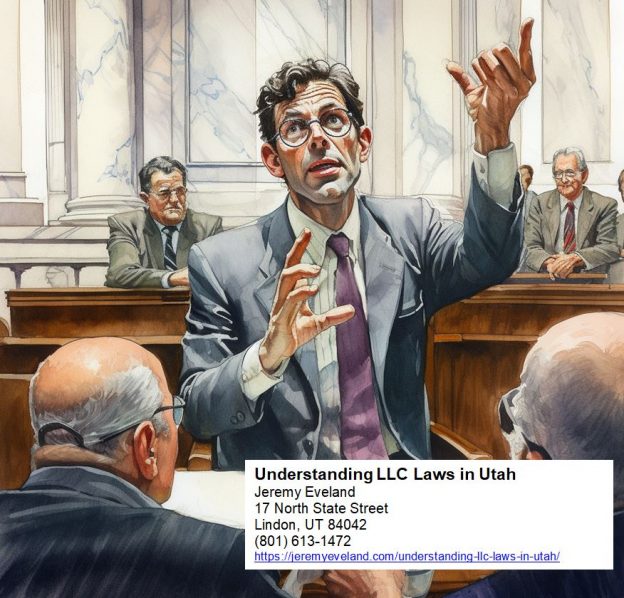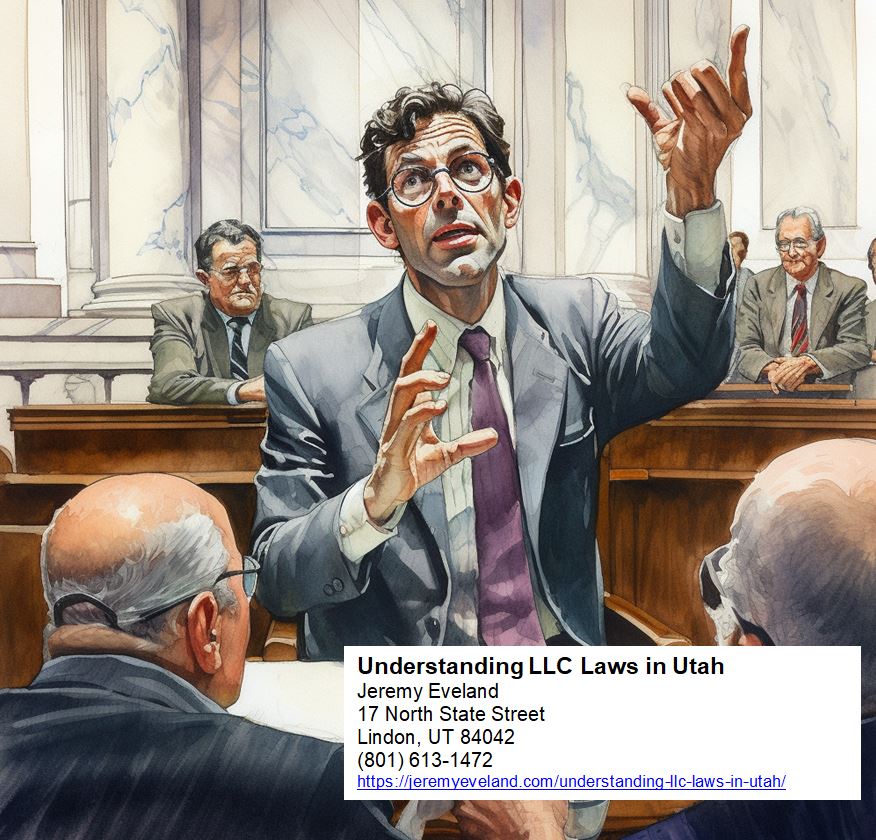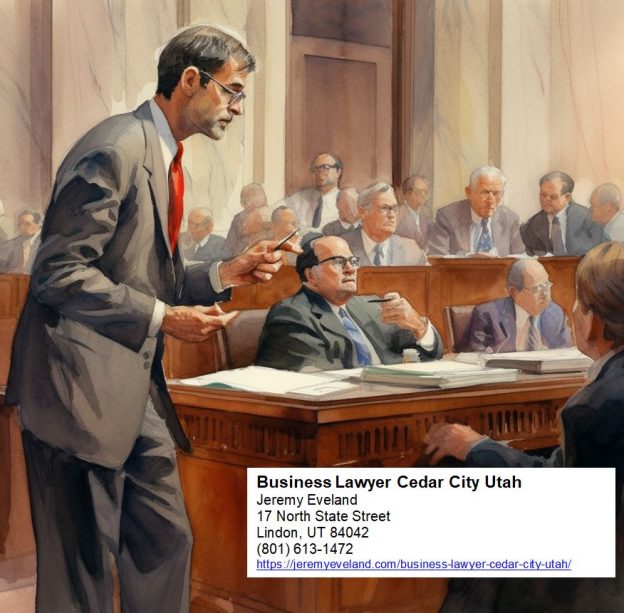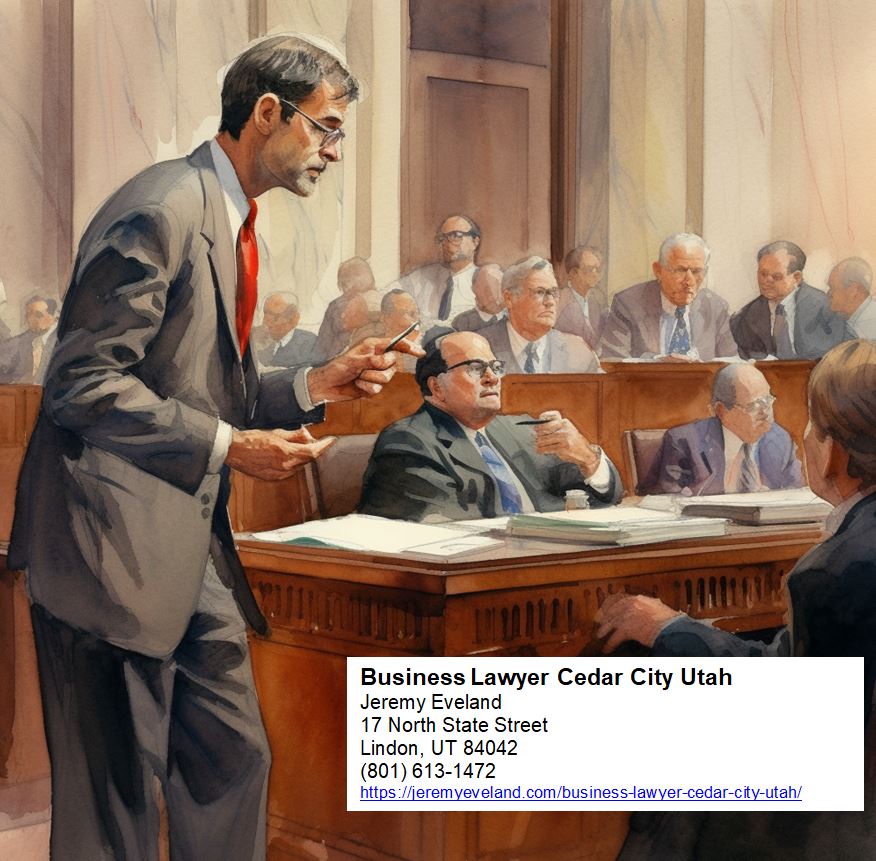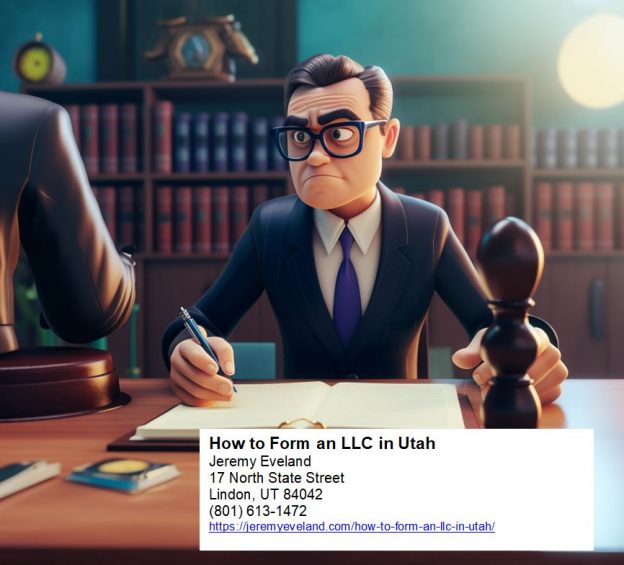Business Lawyer Brigham City Utah
Are you a business owner in Brigham City, Utah? If so, it is crucial for the success and protection of your business to have a legal advisor by your side. In this article, we will highlight the importance of seeking assistance from a business lawyer in Brigham City. With their expertise and support, you can navigate the complex legal landscape with confidence.
Having a trusted business lawyer in Brigham City is essential because they can provide you with valuable guidance and advice. Whether you are facing complex legal issues or simply need general counsel, a corporate attorney can help you make informed decisions that align with your business goals. They will ensure that you comply with all relevant laws and regulations while minimizing any potential risks or liabilities.
Additionally, a business lawyer in Brigham City offers various services tailored to meet your specific needs. From navigating complex regulations to handling employee disputes and drafting contracts, they have the knowledge and experience to protect your interests at every step. So why take chances when it comes to legal matters? Reach out to a skilled business lawyer in Brigham City, Utah, today for invaluable assistance that will contribute to the success of your business.
Key Takeaways
- Business lawyers in Brigham City, Utah assist in handling employee disputes and finding resolutions.
- They provide unbiased guidance and foster effective communication between parties.
- Proper documentation is vital in employee dispute cases, and business lawyers ensure all relevant communications and actions are properly documented.
- Drafting effective contracts and agreements is crucial for business success, and business lawyers in Brigham City, Utah provide guidance in crafting thorough and legally binding contracts.
Importance of Having a Legal Advisor for Your Business
If you want your business to navigate the treacherous waters of legal challenges like a skilled captain steering a ship through stormy seas, then having a legal advisor is as crucial as having an experienced sailor guiding you towards safe harbors. A business lawyer in Brigham City, Utah can be that trusted legal advisor who will play an essential role in protecting your business interests. Their expertise and knowledge of business law can help you avoid potential pitfalls and ensure compliance with all relevant regulations.
The importance of having a legal advisor for your business cannot be overstated. They are well-versed in the intricacies of business law and can provide valuable advice on various legal matters such as contracts, intellectual property rights, employment laws, and more. By having a business lawyer by your side, you can make informed decisions that minimize risks and maximize opportunities for growth.
Another significant advantage of having a legal advisor is their ability to handle any litigation or dispute that may arise. In the unfortunate event that your business becomes involved in a lawsuit or faces legal action, a skilled attorney will be there to represent your best interests. They will guide you through the entire process, from gathering evidence to negotiating settlements or representing you in court if necessary.
The importance of having a legal advisor for your business cannot be emphasized enough. A knowledgeable business lawyer in Brigham City, Utah will provide invaluable guidance on various legal matters and protect your interests when faced with litigation. So if you want your business to stay on course amidst stormy seas of legal challenges, it's time to reach out to a reliable corporate attorney who can serve as your trusted guide into safe harbors.
Moving forward into the next section about "services offered by a Business Lawyer in Brigham City, Utah,"let's delve deeper into how these professionals can assist you with specific areas of expertise.
Services Offered by a Business Lawyer in Brigham City, Utah
With their expertise in legal matters and extensive knowledge of local regulations, a skilled business lawyer in Brigham City, Utah can provide a wide range of services to help businesses navigate complex legal issues. Whether you are starting a new business or managing an existing one, having a business lawyer by your side is crucial to ensure that you comply with all the necessary laws and regulations. A business lawyer can assist you in drafting contracts, negotiating deals, and protecting your intellectual property rights. They can also provide valuable advice on various legal aspects of running a business.
One of the key services offered by a business lawyer in Brigham City, Utah is contract drafting and review. Contracts play a vital role in any business transaction, from agreements with suppliers to partnerships with other companies. A business lawyer can draft customized contracts that protect your interests and clearly outline the responsibilities and obligations of all parties involved. They will also carefully review any contracts presented to you, making sure that there are no hidden clauses or potential risks that could harm your business.
Another important service provided by a business lawyer is assistance with intellectual property matters. Your company's intellectual property, such as trademarks, copyrights, and patents, is valuable assets that need protection. A business lawyer can help you register these assets with the appropriate government agencies and enforce your rights if they are ever infringed upon. Additionally, they can advise you on strategies to prevent infringement and ensure that your intellectual property remains secure.
Furthermore, a skilled corporate attorney in Brigham City, Utah can guide you through the process of resolving disputes or litigating legal issues that may arise within your business. Whether it's an employment dispute or breach of contract claim, having an experienced advocate on your side can make all the difference. Your attorney will work diligently to protect your interests and find the most favorable resolution for your situation.
In conclusion,"services offered by a Business Lawyer"section has highlighted some key areas where their expertise comes into play – contract drafting and review, intellectual property protection, and dispute resolution. These services are vital for any business in Brigham City, Utah to navigate the complex legal landscape successfully. With a business lawyer by your side, you can ensure that your business complies with all regulations and is protected from potential legal risks. In the next section, we will explore how a skilled corporate attorney can help you navigate complex regulations in Brigham City, Utah without missing a beat.
Navigating Complex Regulations in Brigham City, Utah
Navigating the intricate web of regulations in this bustling city requires a skilled corporate attorney by your side, seamlessly guiding you through legal obstacles. A business lawyer in Brigham City, Utah is well-versed in the complexities of local regulations and can help ensure that your business is compliant with all applicable laws. With their expertise, they can assist you in understanding zoning laws, permits and licenses required for operating a business, tax obligations, and other legal requirements specific to Brigham City.
With a qualified attorney on your team, you can navigate the complex regulatory landscape with confidence. They will work closely with you to ensure that your business operations align with the laws set forth by Brigham City. Whether it's obtaining the necessary permits or ensuring compliance with environmental regulations, an experienced lawyer will guide you through each step of the process, saving you time and reducing potential risks.
Brigham City has its own unique set of rules and regulations that businesses need to comply with. A knowledgeable attorney who specializes in business law understands these intricacies and can help interpret them for you. They will keep up-to-date on any changes or amendments to existing laws so that you remain informed and compliant at all times. By having a dedicated lawyer by your side, you can focus on running your business while they handle legal matters efficiently.
Having a skilled corporate attorney familiar with navigating complex regulations in Brigham City, Utah is essential for any business owner. Their expertise allows them to guide you through various legal obstacles seamlessly while ensuring compliance at every step. By partnering with a knowledgeable lawyer who understands the intricacies of local regulations, such as zoning laws and permit requirements specific to Brigham City, you can confidently operate your business within the bounds of the law. Next up: handling employee disputes with legal assistance ensures smooth resolution without unnecessary complications.
Handling Employee Disputes with Legal Assistance
Dealing with conflicts among employees can be a challenging task, but having the guidance of an experienced legal professional can help ensure a smooth resolution without unnecessary complications. When it comes to handling employee disputes in Brigham City, Utah, hiring a business lawyer is crucial to protect your company's interests and maintain a harmonious work environment. Here are some ways in which a lawyer can assist you:
-
Mediation: A skilled business lawyer in Brigham City, Utah, can act as a mediator between conflicting employees. They have the expertise to facilitate productive discussions and find common ground for resolution. By providing unbiased guidance and fostering effective communication, they can help parties reach an agreement that satisfies both sides.
-
Legal Advice: Employee disputes often involve complex legal issues that require careful analysis and interpretation. A knowledgeable business lawyer familiar with employment laws in Brigham City, Utah, can provide you with sound legal advice tailored to your specific situation. They will assess the merits of each dispute and guide you on how best to mitigate risks while ensuring compliance with applicable regulations.
-
Documentation: In any employee dispute case, proper documentation is vital for evidence and protection against potential liabilities. A business lawyer will make sure all relevant communications, agreements, grievances, or disciplinary actions are properly documented according to legal requirements. This meticulous record-keeping helps strengthen your position if the dispute escalates further.
Having a skilled business lawyer by your side when dealing with employee disputes gives you peace of mind knowing that every step taken has been legally sound and strategically planned. With their assistance, you can effectively navigate through these challenges while safeguarding your company's reputation and bottom line.
Now that we've discussed handling employee disputes with legal assistance in Brigham City, Utah let's move on to another crucial aspect of running a successful business – drafting contracts and agreements for business success.
Drafting Contracts and Agreements for Business Success
Ensure your business's success by crafting effective contracts and agreements that protect your interests and foster fruitful relationships. When it comes to drafting contracts and agreements, it is crucial to have the guidance of a skilled business lawyer in Brigham City, Utah. These legal professionals have the knowledge and expertise to create thorough and legally binding documents that are tailored to your specific needs.
Drafting contracts can be a complex process that requires attention to detail and an understanding of legal language. A business lawyer in Brigham City, Utah will work closely with you to identify the key terms and conditions that need to be included in your contracts. They will ensure that all necessary clauses are incorporated, such as confidentiality provisions, dispute resolution mechanisms, and termination rights. By having a well-drafted contract in place, you can minimize the risk of disputes or misunderstandings down the line.
Agreements play a vital role in establishing relationships with employees, customers, suppliers, or partners. A business lawyer can assist you in drafting agreements that clearly outline each party's rights and obligations. Whether it is an employment agreement, a nondisclosure agreement, or a partnership agreement, having these documents professionally drafted ensures that everyone involved understands their roles and responsibilities. This clarity fosters trust between parties while protecting your business interests.
In addition to providing legal protection for your business interests, well-drafted contracts and agreements also contribute to its overall success. They set clear expectations for all parties involved and provide guidelines on how potential disputes should be resolved. Moreover, they establish credibility within your industry by demonstrating professionalism and commitment to fair dealing. With the help of a trusted business lawyer in Brigham City, Utah who specializes in drafting contracts and agreements for businesses like yours, you can navigate this complex area of law confidently while setting yourself up for long-term success.
Frequently Asked Questions
How can a business lawyer in Brigham City, Utah help with trademark and copyright issues?
A business lawyer in Brigham City, Utah can be instrumental in helping you navigate trademark and copyright issues. They have the expertise and knowledge to guide you through the complex legal processes involved in protecting your intellectual property. Have you ever wondered how to ensure that your trademarks are registered correctly or how to defend your copyrights against infringement? A business lawyer can assist you with all of these concerns, ensuring that your rights are protected and giving you peace of mind. Whether it's registering trademarks, drafting licensing agreements, or pursuing legal action against infringers, a business lawyer is an invaluable resource for any company dealing with trademark and copyright issues. Don't hesitate to reach out to a corporate attorney today for expert help in safeguarding your intellectual property rights.
What are some common legal challenges faced by small businesses in Brigham City, Utah?
Small businesses in Brigham City, Utah face several common legal challenges. These include issues related to contracts, employment law, intellectual property rights, and regulatory compliance. Contract disputes can arise with vendors, clients, or employees, which may require legal assistance to resolve. Employment law concerns can involve matters such as hiring practices, workplace discrimination claims, or wage and hour disputes. Protecting intellectual property rights is crucial for small businesses to safeguard their trademarks and copyrights from infringement. Finally, navigating the complex web of regulations and staying compliant with local and federal laws can be a daunting task for small business owners. To overcome these legal challenges effectively and ensure your business's success, it is essential to consult a corporate attorney who specializes in business law in Brigham City, Utah . A corporate attorney who specializes in business law in Brigham City, Utah can provide expert guidance and support to small business owners, helping them navigate the complex landscape of regulations and laws. They can assist in drafting and reviewing contracts, ensuring compliance with employment and labor laws, and protecting intellectual property rights. By consulting with a corporate attorney, small business owners can minimize legal risks, avoid costly litigation, and focus on growing their business with confidence.
Can a business lawyer assist with resolving disputes between business partners or shareholders?
Yes, a business lawyer can definitely assist with resolving disputes between business partners or shareholders. They are like the referee in a game of basketball, stepping in to mediate and find a fair resolution that satisfies all parties involved. Whether it's a disagreement over decision-making, profit distribution, or breach of contract, a skilled business lawyer will use their expertise and knowledge of the law to help navigate through the complexities and reach an agreement that protects your interests. So don't hesitate to pick up the phone and call a corporate attorney for business law help – they can be the key to finding peace amidst conflict.
How can a business lawyer help with business succession planning in Brigham City, Utah?
A business lawyer can help with business succession planning in Brigham City, Utah by providing legal guidance and expertise throughout the process. They can assist you in creating a comprehensive plan that outlines the steps to be taken in transferring ownership or management of your business to a successor. This includes drafting necessary legal documents such as buy-sell agreements, wills, and trusts to ensure a smooth transition. They can also provide advice on minimizing tax implications and avoiding potential disputes among family members or other stakeholders. With their knowledge of local laws and regulations, a business lawyer can help you navigate through the complexities of succession planning to protect your business interests and ensure its continued success. So why not reach out to a corporate attorney today for assistance?
What are the potential legal risks of not having a business lawyer in Brigham City, Utah?
Not having a business lawyer in Brigham City, Utah can expose you to potential legal risks that could have serious consequences for your business. Without the guidance and expertise of a corporate attorney, you may find yourself facing various challenges such as contract disputes, employment law issues, intellectual property infringement claims, or even lawsuits from customers or competitors. These legal risks can be complex and costly to navigate on your own, but a business lawyer can help protect your interests by providing sound advice, drafting contracts and agreements, ensuring compliance with regulations, and representing you in court if necessary. Don't leave your business vulnerable to legal troubles – reach out to a corporate attorney today for the help you need.
Areas We Serve
We serve individuals and businesses in the following locations:
Salt Lake City Utah
West Valley City Utah
Provo Utah
West Jordan Utah
Orem Utah
Sandy Utah
Ogden Utah
St. George Utah
Layton Utah
South Jordan Utah
Lehi Utah
Millcreek Utah
Taylorsville Utah
Logan Utah
Murray Utah
Draper Utah
Bountiful Utah
Riverton Utah
Herriman Utah
Spanish Fork Utah
Roy Utah
Pleasant Grove Utah
Kearns Utah
Tooele Utah
Cottonwood Heights Utah
Midvale Utah
Springville Utah
Eagle Mountain Utah
Cedar City Utah
Kaysville Utah
Clearfield Utah
Holladay Utah
American Fork Utah
Syracuse Utah
Saratoga Springs Utah
Magna Utah
Washington Utah
South Salt Lake Utah
Farmington Utah
Clinton Utah
North Salt Lake Utah
Payson Utah
North Ogden Utah
Brigham City Utah
Highland Utah
Centerville Utah
Hurricane Utah
South Ogden Utah
Heber Utah
West Haven Utah
Bluffdale Utah
Santaquin Utah
Smithfield Utah
Woods Cross Utah
Grantsville Utah
Lindon Utah
North Logan Utah
West Point Utah
Vernal Utah
Alpine Utah
Cedar Hills Utah
Pleasant View Utah
Mapleton Utah
Stansbury Par Utah
Washington Terrace Utah
Riverdale Utah
Hooper Utah
Tremonton Utah
Ivins Utah
Park City Utah
Price Utah
Hyrum Utah
Summit Park Utah
Salem Utah
Richfield Utah
Santa Clara Utah
Providence Utah
South Weber Utah
Vineyard Utah
Ephraim Utah
Roosevelt Utah
Farr West Utah
Plain City Utah
Nibley Utah
Enoch Utah
Harrisville Utah
Snyderville Utah
Fruit Heights Utah
Nephi Utah
White City Utah
West Bountiful Utah
Sunset Utah
Moab Utah
Midway Utah
Perry Utah
Kanab Utah
Hyde Park Utah
Silver Summit Utah
La Verkin Utah
Morgan Utah
Business Lawyer Brigham City Utah Consultation
When you need help from a Business Attorney near Brigham City, call Jeremy D. Eveland, MBA, JD (801) 613-1472 for a consultation.
Jeremy Eveland
17 North State Street
Lindon UT 84042
(801) 613-1472
Related Posts
Understanding Anti-Trust Laws in Utah
Business Lawyer Cedar City Utah
Understanding LLC Laws in Utah
Business Lawyer Kaysville Utah
Understanding Utah’s Non-Profit Laws
Business Lawyer Clearfield Utah
Business Lawyer American Fork Utah
How To Handle Customer Complaints In Utah
Business Lawyer Saratoga Springs Utah
The Role of Business Law in Protecting Minority Shareholder Rights
What Are The 4 Different Types of Business Law?
Business Lawyer Washington Utah
Business Lawyer South Salt Lake Utah
Legal Requirements for Utah Technology Startups
Business Lawyer Farmington Utah
Due Diligence For Buying A Utah Business
Understanding Utah’s Labor Laws
Business Lawyer North Salt Lake Utah
Product Liability Laws in Utah
Preventing Cybersecurity Breaches
Business Lawyer North Ogden Utah
Business Lawyer Brigham City Utah
[geocentric_weather id=”7b04e74e-71d8-427d-82e2-23c3edd15f53″]
[geocentric_about id=”7b04e74e-71d8-427d-82e2-23c3edd15f53″]
[geocentric_neighborhoods id=”7b04e74e-71d8-427d-82e2-23c3edd15f53″]
[geocentric_thingstodo id=”7b04e74e-71d8-427d-82e2-23c3edd15f53″]
[geocentric_busstops id=”7b04e74e-71d8-427d-82e2-23c3edd15f53″]
[geocentric_mapembed id=”7b04e74e-71d8-427d-82e2-23c3edd15f53″]
[geocentric_drivingdirections id=”7b04e74e-71d8-427d-82e2-23c3edd15f53″]
[geocentric_reviews id=”7b04e74e-71d8-427d-82e2-23c3edd15f53″]








